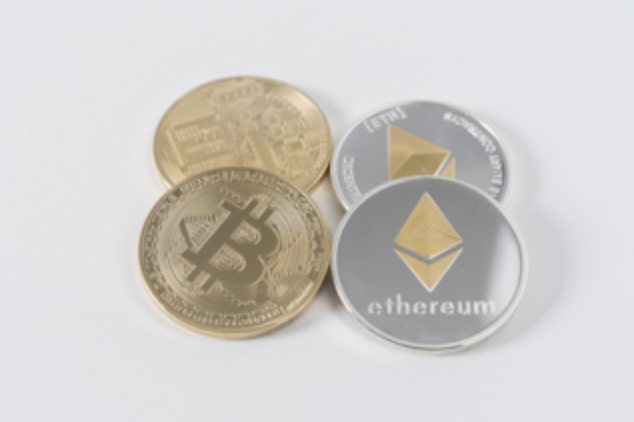Hindsight from 2020: Notable Regulatory Events for Blockchain in 2019
Ketsal’s team of lawyers put our heads together in early January to reflect on the prior year and what it means for the one to come. Regulators really did step it up this year. There’s a lot to digest.
We won’t deign to predict the future too much, but we can always tease out lessons from the past. Our summary of notable regulatory events follows in chronological order.
Bitcoin remains king of the hill.
SEC Framework for Digital Assets
April 2019. A division of the Securities and Exchange Commission (“SEC”) published a framework[1] for analyzing the security status of a digital asset. This highly anticipated “plain English”[2] guidance provided practitioners with some key takeaways. First, the SEC has contributed serious mental horsepower to issues involving blockchain technology. Second, the SEC takes a different view from the courts on at least one prong of the Howey test.[3] Third, the Commission will continue to exercise its influence over the industry well into 2020.
SEC’s Blockchain No-Action Letters
April 2019. The SEC decided not to recommend enforcement action against two companies involved in distributing blockchain-based tokens. Turnkey Jet released tokens that doubled as loyalty points[4] and Pocketful of Quarters released tokens for specific use on gaming networks.[5] In both cases, the SEC showed a willingness to recognize a token offered and sold in a token sale may not be an investment contract. Perhaps the SEC will expand upon this willingness as it becomes more exposed to the range of potential token distributions.
Decentralization continues to be the goal for 2020.
FinCEN Releases Detailed Virtual Currency Guidance
May 2019. Financial Crimes Enforcement Network (“FinCEN”) released updated guidance[6] revealing how FinCEN regulations apply to various business models involving money transmission. Significantly, it reminded the industry that “suppliers of tools (communications, hardware, or software) that may be utilized in money transmission, . . . are engaged in trade and not money transmission.” A person that “utilizes the software . . . will be either a user or a money transmitter.” This distinction may be relevant for companies that exercise control over decentralized apps that allow for money transmission.
Blockchain Tokens and Regulation A
July 2019. The offering statements of two companies nearly simultaneously became qualified by the SEC, and they began offering tokens to unaccredited investors under Regulation A. (We worked with YouNow on their historic first.[7]) Our prior article speaks to the meaningfulness of these firsts and posits that, going forward, Regulation A may be a powerful and compliant means for U.S. companies to develop a blockchain-based network powered by retail investors.
FINRA/SEC Speaks on Custody
July 2019. Following long delays regarding broker-dealer applications, the Financial Industry Regulatory Authority (“FINRA”) and the SEC released a joint statement[8] on broker-dealer custodianship of digital asset securities. The statement elaborated on major challenges, including difficulties complying with the customer protection rule. The statement showed a willingness to work in collaboration with industry to resolve these problems.
Physical bitcoin and physical ether?
CFTC Approves Physically Settled Bitcoin Futures
September 2019. Bakkt and ErisX became the first companies to offer physically settled bitcoin futures in the U.S. after approval from the CFTC. With further approvals expected in 2020,[9] movement towards physically settled derivatives may help provide a track record to support the approval of bitcoin- or ether-based exchange traded funds.
CFTC Says Ether Is a Commodity
October 2019. Commodity Futures Trading Commission (“CFTC”) Chairman Tabert stated, “ether is a commodity and therefore would fall under our jurisdiction.”[10] The industry has been starved for clear statements from regulators; even if it was stating something implied by prior enforcement orders, this was a welcome statement by a prominent regulator.
SEC Allows Clearing & Settlement on Blockchain
October 2019. Paxos obtained a no-action letter[11] from the SEC for the clearance and settlement of U.S. listed equity securities trades on a private and permissioned blockchain without the need for Paxos to register as a clearing agency. The letter allows Paxos to conduct a two-year pilot in a limited production environment and may provide a glimpse into how blockchain can be used to clear and settle securities trades without a traditional clearinghouse intermediary.
IRS Releases Airdrops and Forks Guidance
October 2019. The Internal Revenue Service (“IRS”) issued additional guidance[12] on reporting obligations for virtual currency transactions. The guidance uses the terms “airdrop” and “hard fork” in idiosyncratic ways that industry participants may not recognize. Regardless of the use of the terms, the IRS will address non-compliance in a number of ways, “ranging from taxpayer education to audits to criminal investigations.”[13]
FinCEN: Travel Rule Applies to Cryptocurrencies
November 2019. FinCEN Director Kenneth Blanco confirmed in a speech[14] that a recordkeeping rule known as the funds travel rule applies to convertible virtual currencies. Although he stated, “this idea is nothing new,”[15] the statement stirred commentary from industry participants who believed it technically impossible to comply with the rule.
We believe the tension between existing rules and new technology will only heighten in 2020. Our team is excited to provide innovative solutions to these ongoing issues in the new year.
Endnotes
[1] Framework for “Investment Contract” Analysis of Digital Assets, SEC Staff Guidance (Apr. 3, 2019), https://www.sec.gov/files/dlt-framework.pdf (the “Framework).
[2] See Andrew Ramonas, SEC Plans ‘Plain English’ Crypto Securities Guide (Nov. 5, 2019), https://news.bloomberglaw.com/securities-law/sec-plans-plain-english-crypto-securities-guide.
[3] See Framework n.10 (Stating publicly that “the Commission . . . does not require vertical or horizontal commonality per se, nor does it view a “common enterprise” as a distinct element of the term “investment contract.”).
[4] TurnKey Jet, Inc., SEC No-Action Letter (Apr. 3, 2019).
[5] Pocketful of Quarters Inc., SEC No-Action Letter (July 25, 2019).
[6] FIN-2019-G001, “Guidance: Application of FinCEN’s Regulations to Certain Business Models Involving Virtual Currencies,” May 9, 2019, available at https://www.fincen.gov/sites/default/files/2019-05/FinCEN%20Guidance%20CVC%20FINAL%20508.pdf.
[7] See YouNow, Inc. Offering Circular dated July 12, 2019, available at https://www.sec.gov/Archives/edgar/data/1725129/000162827919000262/younow253g2.htm (Ketsal’s affiliated law firm is Blakemore, Fallon, Garcia, Rosini, & Russo PLLC; see https://blakemorefallon.com).
[8] SEC Division of Trading & Markets and FINRA Office of General Counsel, Joint Staff Statement on Broker-Dealer Custody of Digital Asset Securities (July 8, 2019), https://www.sec.gov/news/public-statement/joint-staff-statement-broker-dealer-custody-digital-asset-securities.
[9] See Nikhilesh De, CFTC Chair Says Ether Futures ‘Likely’ in 2020 (Oct. 21, 2019), https://www.coindesk.com/cftc-chair-says-well-likely-see-ether-futures-in-6-months.
[10] Chairman Tarbert Comments on Cryptocurrency Regulation at Yahoo! Finance All Markets Summit, CFTC Press Release (Oct. 10, 2019), https://www.cftc.gov/PressRoom/PressReleases/8051-19.
[11] Letter from Jeffrey S. Mooney, Associate Director, SEC, to Charles G. Cascarilla & Daniel M. Burstein, Paxos Trust Company, LLC (Oct. 28, 2019), https://www.sec.gov/divisions/marketreg/mr-noaction/2019/paxos-trust-company-102819-17a.pdf.
[12] Virtual currency: IRS issues additional guidance on tax treatment and reminds taxpayers of reporting obligations, IRS News Release (Oct. 9, 2019), https://www.irs.gov/newsroom/virtual-currency-irs-issues-additional-guidance-on-tax-treatment-and-reminds-taxpayers-of-reporting-obligations.
[13] Id.
[14] See Kenneth A. Blanco, Dir., FinCEN, Prepared Remarks of FinCEN Director Kenneth A. Blanco at Chainalysis Blockchain Symposium (Nov. 15, 2019), https://www.fincen.gov/news/speeches/prepared-remarks-fincen-director-kenneth-blanco-chainalysis-blockchain-symposium.
[15] Id.



